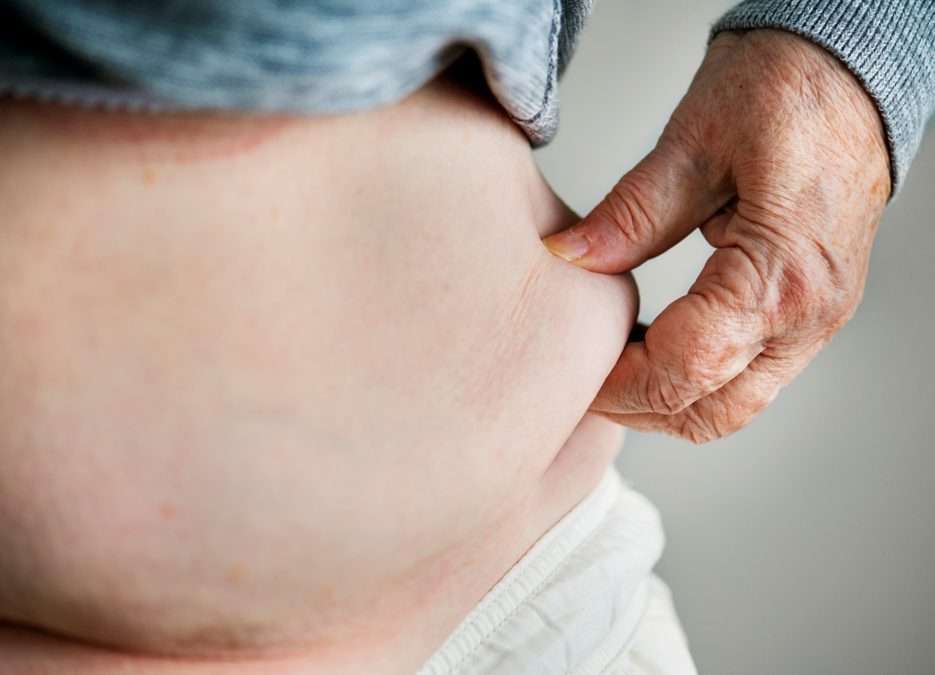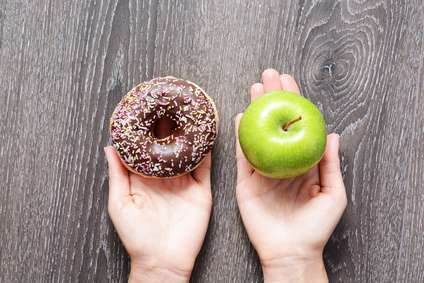- PERTH SURGICAL & BARIATRICS
-
08 65581901
You might not be the most dedicated person to exercise, but you might want to start considering it. While physical benefits are the biggest perks of a fitness routine, there are other reasons why starting an exercise program can really improve your life in general.
For example, work productivity and creativity dwindle from time to time when we get stressed. Over the past two years, many have experienced slumps due to the COVID-19 pandemic. It has become prohibitively difficult to manage everyone’s time. Social interaction limits and erratic schedules have been a problem for children and adults alike.
Putting on your shoes, opening your door, and taking a brisk walk outside is one sure way to alleviate the stress and weariness so many of us are experiencing.
It is proven that exercise is the best antidote to so many physical and mental health problems. In terms of mental health disorders and long-term health conditions, physical activity alone is unlikely to cure them.
Physical activity has been studied over the years for its mental and physical benefits. Chronic disease risk continues to decrease and emotional wellbeing continues to improve.
If you are looking for a healthier way to live, then you may want to consider adding an exercise routine to your daily schedule. These activities have some of the most wonderful benefits for your body and mind. They are the best to soothe you after a stressful day, and many of them can do wonders for your mental health. All of these activities also have some amazing benefits for your body as well. They help you to relax, improve your blood circulation, and much more. Making exercise part of your daily routine can help you be happy and healthy. A good exercise routine is essential to a happy life.
Short-term and long-term benefits of regular physical activity are both apparent. Among them:
Regular exercise can really change your life! It can improve your metabolism and help you shed some of those unwanted pounds. You’ll have more energy, look better, and feel great about yourself. Read on to learn a few more benefits achievable out of a regular exercise regime.
If you are looking to lose weight, you may consider adding exercise to your routine. Exercise can help you burn calories and lose weight, as well as improve your overall health. In fact, you can burn around 300 calories per hour while you exercise.
When you exercise, your body gets rid of excess water and toxins, which makes your heart work less and keeps you healthy. Exercising also helps control your appetite and keep you from overeating.
It will be a good thing for you to get yourself going with exercising. The more often you exercise, the more effective it will be. The biggest mistake people make is they set themselves up for failure by deciding that they are going to exercise more regularly and they don’t do it. There is no harm in exercising once in a while. You will still see results from exercise, but you need to be consistent in your efforts.
If you are trying to maintain a healthy weight, exercise is a great way to help. Exercise helps burn calories and can help you eat less. There are some health conditions that make it more difficult to exercise, so if you have certain conditions like high blood pressure or diabetes, then it may be best for you to talk to your doctor about how much exercise you should do. Exercising is not a time to make excuses. Everyone should be fit and healthy. If you are one of the people who do not exercise, it’s time to make some changes. It’s a good idea to start with small steps.
People who try to lose weight may want to start by exercising regularly. It is recommended that you exercise at least 30 minutes, three to five times a week. Exercising in combination with a healthy diet will give you the best results.
Exercise can help boost your metabolism and help you lose weight. When you exercise, your body burns more calories, which can help you lose weight or maintain your weight. It’s important to do the right amount of exercise, so you’re not at risk for injuring yourself while you’re exercising. Studies have shown that women who exercise moderately for 30 minutes, five days a week, lost more weight than those who exercised for fewer than 20 minutes per week. By exercising regularly, you can build a healthy heart and more muscles.
Strenuous exercise can stress your heart, which can lead to heart problems. You should stay within your heart’s limits.
In addition to our psychological, emotional, and social wellbeing, our mental health determines how we think, feel, and act. In addition to the impact our mental health has on handling stress, relating to others, and making healthy choices, our mental health can also affect our physical health. When our mental health is suffering, we have a difficult time making good decisions and engaging with those around us.
A multidisciplinary approach that encompasses therapy, medication (in some cases), and lifestyle adjustments, such as dietary adjustments, exercise, and sleep, may be beneficial if you are struggling.
An increase in ‘feel good’ neurochemicals such as serotonin and endorphins will result in an improvement of mood, energy, and wellbeing. Nervous system neurochemicals control pain and stress by helping you cope with them. As well as during pleasurable activities like eating, exercising, and sex, they are also released. You will therefore have more chemicals that help you feel good (and feel less stressed) when you exercise.
Furthermore, exercise increases the flow of blood to the brain and throughout the body. You will think more clearly with the increased oxygen in your brain, which will also increase the size of your hippocampus, a brain region that affects learning and memory.
As you exercise over a sustained period of time, your brain undergoes structural and functional changes which have a huge impact on your mental health.
Kids, teens, and adults can strengthen their muscles and bones with exercise. Through strength-training, bone density is maintained and muscle mass is increased.
Wouldn’t it be nice to get better sleep? Sleeping deeply and refreshingly is a luxury for many people. Yet it isn’t a luxury for everyone. Several studies have shown that regular exercise improves overall sleep quality; for example, it reduces the time it takes you to fall asleep at night (e.g., sleep onset delay) and increases your sleep duration (e.g., fewer night wakings). In addition to improving sleepiness, exercise also improves alertness during the day. Say goodbye to midafternoon drowsiness!
The brain’s plasticity, or its structure and function, can be directly influenced by physical activity. Moving your body can improve your ability to think clearly, solve problems more effectively, make good decisions, switch between tasks more easily, and manage your time more effectively.
There is no sweat in starting a fitness regime, returning to it after a break, or tweaking it to suit your needs. There is no time like the present!
The equipment you use today doesn’t need to be purchased or a gym membership isn’t necessary. As your passion for the activity grows, you may want to invest in a few key items, such as good shoes or an exercise mat, to support your passion. Moving more and sitting less is the key. Instead of taking the elevator, take the stairs. Try parking farther away from the entrance. Vacuum and mop more of the house. It’s great to keep moving with all of these activities.
Put that into practice. In addition to improving your mental and physical health, you’ll have fun doing something you enjoy. However, if you’re just getting started or getting back into fitness after a long absence, you may need a little help finding out what you like.
Walking is an accessible activity for most people that costs zero dollars and is almost always an option. Perhaps you may start with biweekly walks throughout your neighborhood to get your heart rate up and a few minutes of fresh air. How lovely it can be to go for a brisk walk in the cool fall air, which is just around the corner! Walking is also something you can easily do with the whole family – encourage your spouse to join you, bring the baby along in a stroller, invite your tween to ride his bike as you head out. Everyone in the family can do it!
Among other things, these people like to do squats, lunges, pushups, sit-ups, dumbbells, planks, as well as other ‘typical’ strength-training exercises. To establish a plan tailored to your specific needs, you might consult a trainer or a friend with experience.
Exercising outdoors or socially appeals to many people. Here are some suggestions:
Before switching to something else, stick with whatever you select for at least a few sessions. You’re getting used to moving in a new way, and your mind is adjusting to a new routine. It’s normal to feel a little uncomfortable at first. New fitness routines can take some time to adjust to. Don’t worry if you are still bored, uncomfortably situated, or just dissatisfied after a few sessions. Just try something new. Eventually, you’ll find something you really enjoy.
It is recommended by the Centers for Disease Control and Prevention (CDC) that adults perform 150 minutes of moderate to intense aerobic activity per week (or 30 minutes per day, 5 days per week).To reach this duration and intensity, try dividing the 30 minutes into three 10-minute chunks or two 15-minute chunks when necessary. During lunch break, you might take a 15-minute stroll, and after dinner, another 15-minute stroll.
Make time on your calendar for exercising to help your habit stick. Plan to work out on the same days and times every week. So, you won’t get to the end of the day and wonder how you managed to get so much done!
Does exercise really pay off? Yes, it does.
Fitness routines offer a wide array of physical and mental benefits. A walk provides an opportunity for social interaction, meaningful interaction with nature, and introspection as well.
The mere act of exercising will not ‘fix’ all emotional and behavioral health challenges or cure all physical maladies. However, it is undoubtedly helpful. Take the plunge!

April 23 , 2024 | 5 Minutes to Read
Gastric sleeve surgery is one of the highly recommended bariatric procedures to treat morbid obesity and any underlying disorders. It reduces the size of the stomach to create a pouch…

April 22 , 2024 | 3 Minutes to Read
Stomach Intestinal Pylorus Sparing Surgery, also known as SIPS surgery, is a single-anastomosis modified duodenal switch surgery. SIPS Surgical Procedure compared with other weight loss surgical procedures, such as gastric…

April 20 , 2024 | 5 Minutes to Read
Obesity is a global epidemic, and the situation is particularly grave in countries such as Australia. A substantial percentage of its population is obese , sometimes with underlying health conditions,…